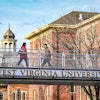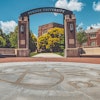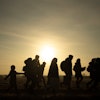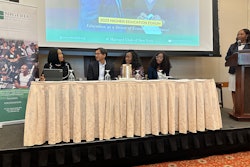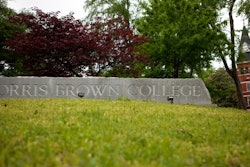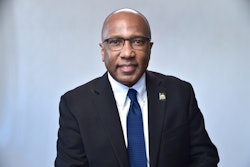Colleges and universities across the nation are expressing concern following the U.S. Supreme Court’s decision that the Trump administration has the authority to implement a controversial travel ban.
“Public universities remain deeply concerned about this misguided travel ban and the message it sends to all international students and scholars who have long been drawn to U.S. universities to undertake studies, conduct research and teach students at our world-leading institutions,” said Peter McPherson, president of the Association of Public & Land-Grant Universities.
“Decades of experience in the higher education community shows that these students and scholars provide countless intellectual, cultural and scientific contributions—not just to universities, but to our country as a whole,” said McPherson. “They discover lifesaving cures. They create businesses. They spread American values abroad. In short, they help advance our national interest.”
In the 5-4 opinion written by Chief Justice John Roberts, the court ruled that President Donald Trump’s desired travel restriction fell “squarely” within the president’s authority and rejected as irrelevant claims that the ban was motivated by anti-religious sentiments toward Muslims.
As a presidential candidate, Trump had urged a temporary ban on Muslim entry into the United States out of concern about terrorism until a better immigrant vetting system was put in place. The ban upheld by the high court, the administration’s third iteration, lists seven countries that would be affected – which together represent about 8 percent of the world’s Muslim population — because those nations’ governments poorly vet or do not vet individuals in their country who wish to come to the U.S. The travel ban does not make reference to any religious group and is within the president’s constitutional executive power, Roberts noted.
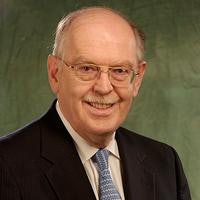 Peter McPherson
Peter McPherson“Any common sense reading of the record can tell that Trump’s travel ban was based on anti-Muslim sentiment,” said Zephyr Teachout, a law professor at Fordham Law School and an expert in constitutional law. “It violates one of the most powerful and critical provisions of the United States Constitution. This is a slap in the face to religious freedom and the rule of law.”
College administrators are scrambling to determine how the ruling will impact their student population, with many institutions already reporting a decline in the number of international students returning to campus.
Experts predict that a decline in enrollment as a result of the ban could cost the nation millions of dollars each year.
“Though we are deeply disappointed in the Supreme Court’s decision, we will continue working closely with our federal partners to ensure the visa system prevents entry by those who wish our nation harm, while maintaining the inflow of global talent that has contributed so much to our nation,” said Dr. Mary Sue Coleman, President of the Association of American Universities. “Our global leadership role would not be possible without the extraordinary flow of international talent, drawn here by academic opportunity and American values.”
Dr. Ted Mitchell, President of the American Council on Education said that there is reason to be alarmed about the ruling.
“While we strongly support the government’s efforts to keep our nation secure, we fear this broadly written prohibition will have a long-term impact on our standing as a global leader and hamper our education and research enterprise and the overall U.S. economy.”
Justices Sonia Stotomayor and Ruth Bader Ginsburg issued a dissent.
“The United States of America is a Nation built upon the promise of religious liberty,” they wrote. “Our Founders honored that core promise by embedding the principle of religious neutrality in the First Amendment. The Court’s decision today fails to safeguard that fundamental principal. It leaves undisturbed a policy first advertised openly and unequivocally as a ‘total and complete shutdown of Muslims entering the United States’ because the policy now masquerades behind a façade of national-security concerns.”

